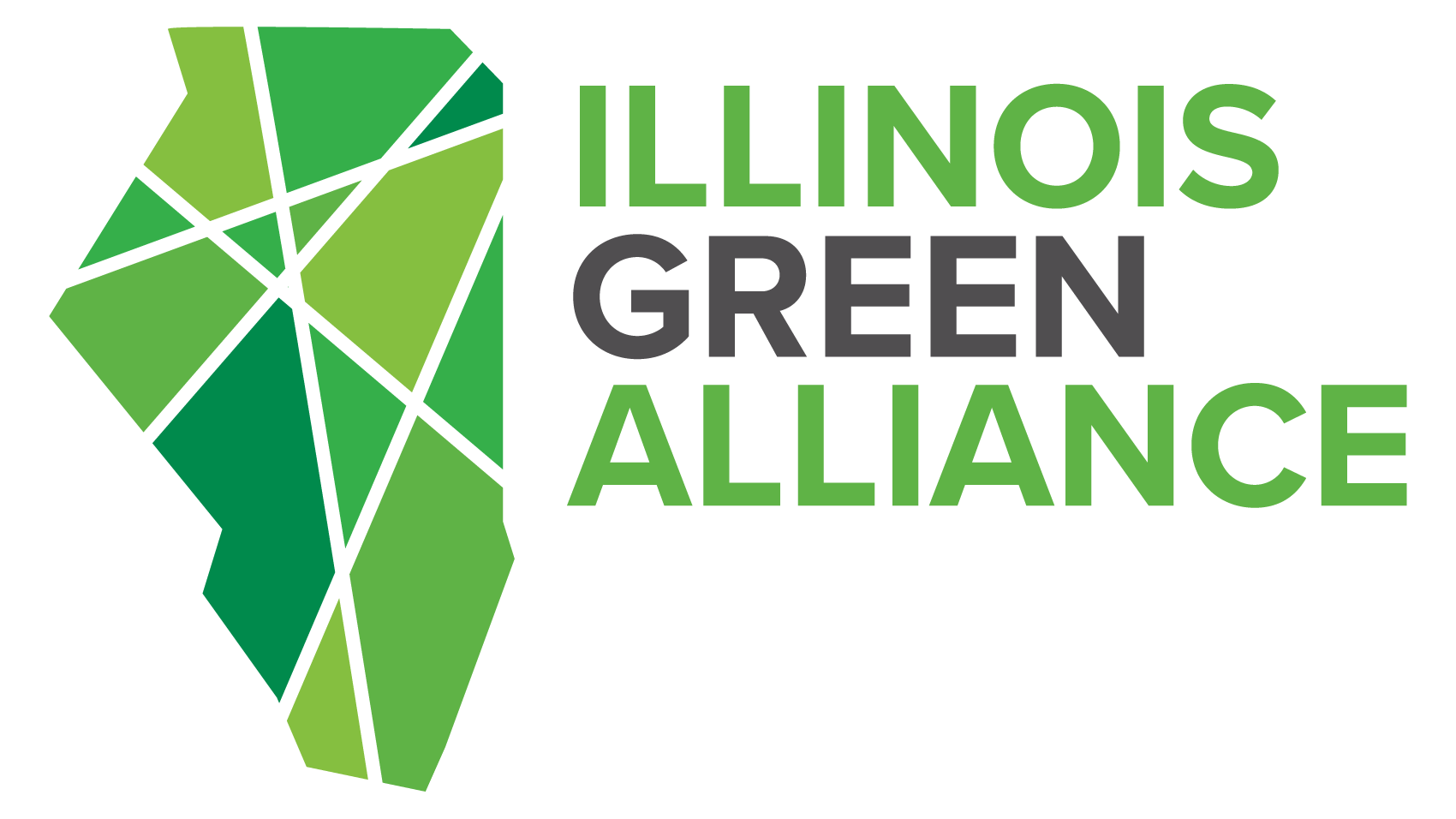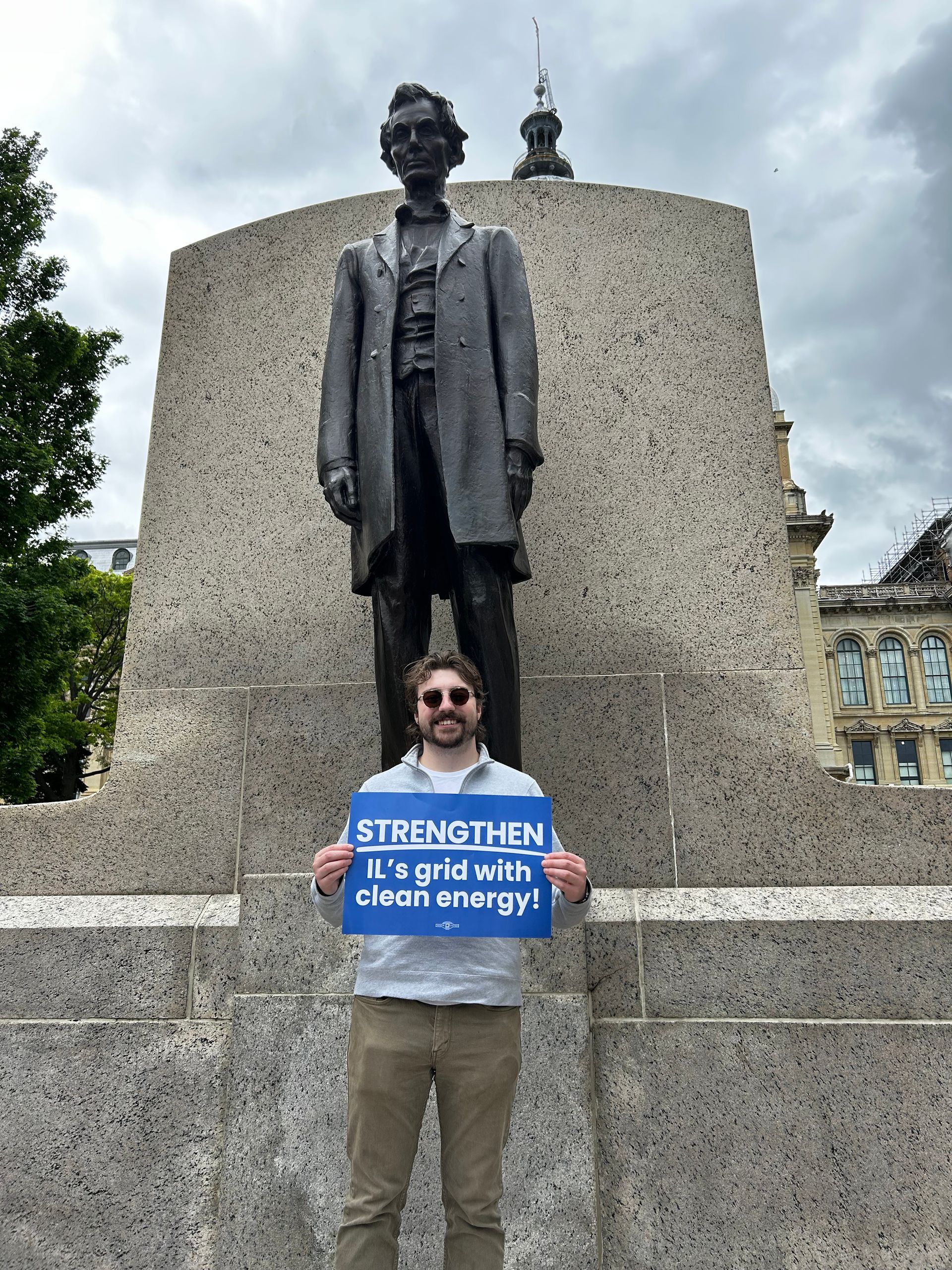What Mayor Johnson’s Transition Report Means for Net-Zero
On July 6th, Mayor Brandon Johnson submitted his transition team’s 223 page set of policy recommendations for the new administration. In this report, the new mayor pledges his support for “Securing a just transition to an equitable decarbonized Chicago” as an environmental justice goal. We dove into this report to learn the specifics of the Mayor Johnson’s net-zero goals.
Decarbonization, Performance Standards, and more
At an event last month, Mayor Johnson stated his commitment to pass a building decarbonization ordinance early in his administration. While a specific ordinance is yet to be introduced, the transition plan includes policies to decarbonize new buildings and establishing performance standards for existing buildings.
Regarding new construction, the transition reports the goal to,
Require all new buildings and major renovations to use efficient, all-electric equipment and build rooftop solar-ready infrastructure starting in July 2025 to align with the building code update, and incentivize the adoption of heat pumps, all-electric equipment, and renewable energy technologies.
As for existing building energy performance targets, the report says to,
Establish energy performance targets for reduced energy use and on-site greenhouse gas emissions standards for buildings over 25k sq/ft. and require that buildings meet the standard by 2040 with interim emissions reductions targets.
In addition, the transition document aims to provide funding to retrofit existing buildings. These retrofits would aim to prioritize divested areas and incorporate all building types from single family homes to large apartment buildings as well as public and subsidized housing. Mayor Johnson has made clear building decarbonization is a priority for early action so expect more updates in the weeks ahead.
Decarbonization Workforce
One of the key elements of Mayor Johnson’s environmental justice agenda is bringing back the City Department of Environment. Shuttered in 2011 due to budget cuts, this report envisions the DOE’s return in 2024 with at least $5 million in funding and significant regulatory power.
The new administration sees two goals for the department: increasing environmental regulation and enforcement & unlocking the significant private, state, and federal funds available. This second piece is especially important as the rest of Mayor Johnson’s agenda, especially with regards to next-zero, will require significant financial investment. As the report points out, there are millions of dollars of funds currently available that could be utilized for decarbonizing the city.
Green New Deal for Schools
The Johnson administration envisions tackling systematic disinvestment and environmental racism by making Chicago a leader in decarbonizing school buildings. The report states that the Johnson administration will work with CPS to address health, safety, and structural issues through energy efficiency retrofits and accessibility upgrades. The plan sets an ambitious long-term goal of retrofitting 50 schools in historically disinvested neighborhoods with climate and environmental facility upgrades.
Other Transition Report Recommendations Include:
- Replacing 40,000 lead service lines by 2027.
- Establishing a geothermal utility.
- Generating community solar power on all publicly-owned rooftops.
- Investing in Equitable Transit Oriented Development and public electric vehicle charging.
- Electrifying the city fleet by 2035 and CTA fleet by 2040.
Takeaways
Mayor Johnson’s transition report, coupled with recent statements, indicate a strong commitment to support building decarbonization to create jobs, support environmental justice communities, and meet the carbon pollution reduction goals set forth in the 2022 City of Chicago Climate Action Plan. It will be important that as policymakers consider how best to act on these recommendations hear from sustainability professionals who have experience and expertise in the technologies and building design practices that can make the decarbonization goals a reality.
If you are a resident of Chicago and want to discuss decarbonization with your alderperson, fill out this form and we will help you do so: https://illinoisgreenalliance.org/be-an-advocate/




